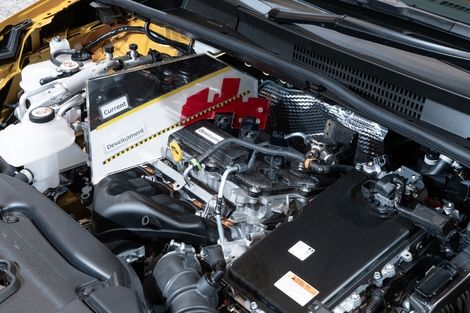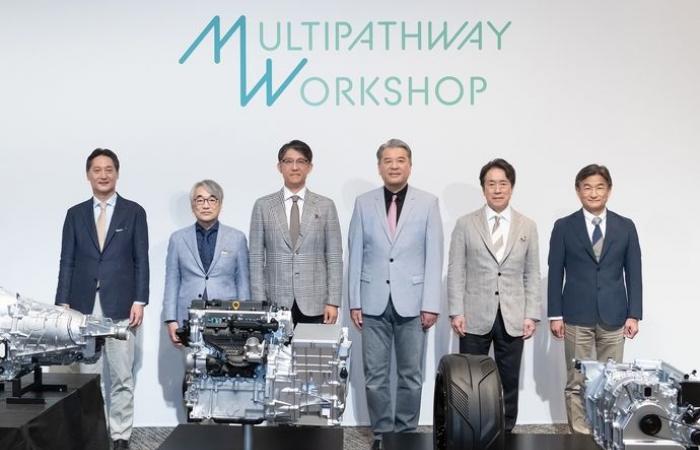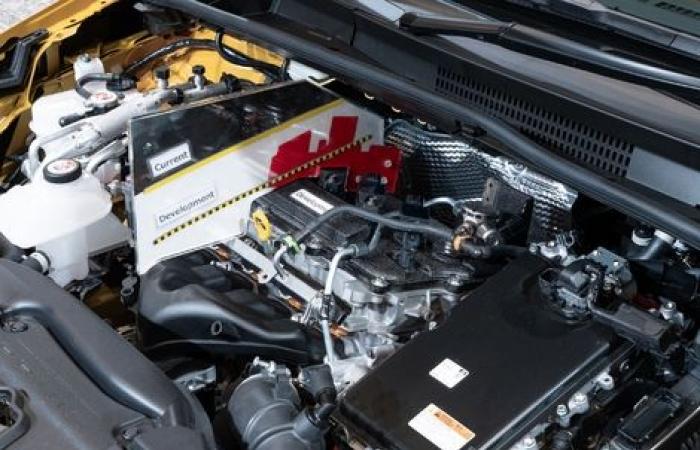At the end of May, the Japanese manufacturers Toyota, Subaru and Mazda announced, during a joint press conference, the joint development of a new generation of thermal engine capable of running indifferently on new generation fuels (hydrogen, biofuel or gasoline). of synthesis). Lighter and more compact, it also has the advantage of being able to be associated with hybridization.
“We are working on the development of 100% electric cars but at the same time we will continue to improve the performance of our combustion engines,” declared Atsushi Osaki, the boss of Subaru. “These combustion engines will have a key role in the process of electrification of mobility,” continued Masahiro Moro, the boss of Mazda.
Subscribe to the Caradisiac newsletter
Receive all the automotive news
I agree to receive partner offers
Register
The email address provided in this form is processed by GROUPE LA CENTRALE as data controller.
This data is used to send you information about our offers, news and events (newsletters, alerts, invitations and other publications).
If you have accepted it, this data will be transmitted to our partners, as data controllers, to allow you to receive their communication electronically.
You have a right of access, rectification, deletion of this data, a right to limit processing, a right of opposition, the right to portability of your data and the right to lodge a complaint with a supervisory authority (in France, the CNIL). You can also withdraw your consent to the processing of your data at any time. To find out more about the processing of your data: www.caradisiac.com/general/confidentialite/
Each of the manufacturers has given itself the mission of developing this technology on an engine that has made it famous. An in-line 4-cylinder for Toyota, a flat 4-cylinder for Subaru and a rotary engine for Mazda. Relayed by the Reuters news agency, Toyota specifically indicated that its new 1.5 liter engine will allow a 10% reduction in volume and weight compared to its existing 1.5 liter engines. For the moment little technical information has been announced. According to the engineers in charge of the project, these motors will have “a shorter stroke and less torque. A torque compensated by the electric motors of the hybridization”. These engines should meet the very drastic Euro 7 pollution standard, which is scheduled to come into force in 2030.

Toyota’s new generation 1.5 engine will allow a 10% reduction in volume and weight compared to the current one. It could also receive synthetic fuels and be associated with hybridization.
Pioneer and leader in hybrids, Toyota has never wanted to put all its eggs in one basket like Volkswagen or Renault who have gone all out on all-electric vehicles, considering that in developing countries, the penetration of vehicles electric will be slow. Thus, if he moved late and timidly to electric, the Japanese diversified the avenues with in particular the fuel cell, hydrogen as pure fuel (Corolla with 1.6 engine entered in a Japanese championship) and today today a multi-energy engine. “We confirm that we are committed to the path to carbon neutrality but that we will achieve this common objective by multiple means,” announced Koji Sato, CEO of Toyota, in a speech echoed, heartily, by his industrial partners . These engines are expected to hit the market in 2027.








